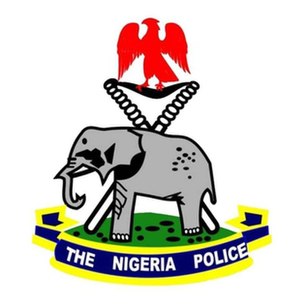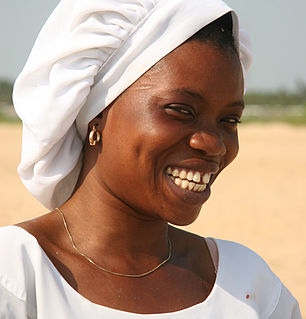
A dress code is a set of rules, often written, with regards to clothing. Dress codes are created out of social perceptions and norms, and vary based on purpose, circumstances, and occasions. Different societies and cultures are likely to have different dress codes, Western dress codes being a prominent example.

Human rights in France are contained in the preamble of the Constitution of the French Fifth Republic, founded in 1958, and the 1789 Declaration of the Rights of Man and of the Citizen. France has also ratified the 1948 Universal Declaration of Human Rights, as well as the European Convention on Human Rights 1960 and the Charter of Fundamental Rights of the European Union (2000). All these international law instruments take precedence on national legislation. However, human rights abuses take place nevertheless. The state of detention centres for unauthorized migrants who have received an order of deportation has also been criticized.

The protection of basic human rights is enshrined in Constitution of Malaysia. These include liberty of the person and prohibition of slavery and forced labour. At the national level, legislative measures that exist to prevent human rights violations and abuses can be found in acts and laws on issues that either have a human rights component or relate to certain groups of society whose rights may be at risk of being violated. Human rights groups are generally critical of the Malaysian government and the Royal Malaysian Police. Preventive detention laws such as the Internal Security Act and the Emergency Ordinance 1969 allow for detention without trial or charge and as such are a source of concern for human rights organizations like Suara Rakyat Malaysia.

LGBT persons in Egypt face legal challenges not experienced by non-LGBT residents.

Lesbian, gay, bisexual, and transgender (LGBT) persons in Nigeria face legal and social challenges not experienced by non-LGBT residents. The country does not allow or recognise LGBT rights. There is no legal protection against discrimination in Nigeria—a largely conservative country of more than 200 million people, split between a mainly Muslim north and a largely Christian south. Very few LGBT persons are open about their orientation, and violence against LGBT people is frequent. Edafe Okporo fled Nigeria to the United States seeking asylum based on his sexual orientation and was granted political asylum in 2017. LGBTQ Nigerians are fleeing to countries with progressive law to seek protection.

Human rights in Nigeria are protected under the most current constitution of 1999. Nigeria has made major improvements in human rights under this constitution though the American Human Rights Report of 2012 notes areas where significant improvement is needed, which include: abuses by Boko Haram, killings by government forces, lack of social equality, and issues with freedom of speech. The Human Rights Watch's 2015 World Report states that intensified violence by Boko Haram, restrictions of LGBTIQQ rights, and government corruption continue to undermine the status of human rights in Nigeria.

The Mabahith, also spelled Mabaheth, is the secret police agency of the Presidency of State Security in Saudi Arabia, and deals with domestic security and counter-intelligence. The officers of the Mabahith have delegated powers to investigate, survey, and detain individuals who are deemed to be "threats to national security". The Mabahith has conducted a wide variety of security operations that have led to the arrest of high profile terrorists, and opposition members that caused internal unrest. Officially, the Mabahith are to turn over arrested individuals to the Saudi courts for sentencing. The Mabahith have been used by the government of Saudi Arabia to monitor political opposition and individuals they deem to be threatening to Saudi society. The organization has been criticized by the United Nations, Amnesty International, and Human Rights Watch.

Angola has long been severely criticized for its human rights record. A 2012 report by the U.S. Department of State said, "The three most important human rights abuses [in 2012] were official corruption and impunity; limits on the freedoms of assembly, association, speech, and press; and cruel and excessive punishment, including reported cases of torture and beatings as well as unlawful killings by police and other security personnel. Other human rights abuses included: harsh and potentially life-threatening prison conditions; arbitrary arrest and detention; lengthy pretrial detention; impunity for human rights abusers; lack of judicial process and judicial inefficiency; infringements on citizens' privacy rights and forced evictions without compensation; restrictions on nongovernmental organizations; discrimination and violence against women; abuse of children; trafficking in persons; discrimination against persons with disabilities, indigenous people, and persons with HIV/AIDS; limits on workers' rights; and forced labor."

Over the decades, the state of human rights in Iran has been found wanting. From the Imperial Pahlavi dynasty, through the Islamic Revolution (1979), to the era of the Islamic Republic of Iran, government treatment of Iranian citizens rights had been criticized by Iranians, by international human rights activists, by writers, and by NGOs. While the monarchy under the rule of the shahs was widely attacked by most Western watchdog organizations for having an abysmal human rights record, the current government of the Islamic Republic is considered still worse by many.

Toonen v. Australia was a landmark human rights complaint brought before the United Nations Human Rights Committee (UNHRC) by Tasmanian resident Nicholas Toonen in 1994. The case resulted in the repeal of Australia's last sodomy laws when the Committee held that sexual orientation was included in the antidiscrimination provisions as a protected status under the International Covenant on Civil and Political Rights (ICCPR).

Lesbian, gay, bisexual and transgender rights in Chechnya have long been a cause for concern among human rights organizations such as Amnesty International and Human Rights Watch. As a part of the Russian Federation, Russia's LGBT laws formally apply. De facto, there are no protections for LGBT citizens, and the Chechen authorities allegedly encourages the killing of people suspected of homosexuality by their families.

The Nigeria Police is the principal law enforcement and the lead security agency in Nigeria with a staff strength of about 371,800. There are currently plans to increase the force to 650,000, adding 280,000 new recruits to the existing 370,000. The NPF is a very large organisation consisting of 36 State commands grouped into 12 zones and 7 administrative organs. The agency is currently headed by IGP Adamu Muhammed. In 2020, it underwent major overhauls.
Sex segregation in Iran encompasses practices derived from the conservative dogma of Shiite Islam currently taking place in Iran. Most areas of the country are segregated by sex, except universities. In many cities, there are women parks, just for females.
Islamic religious police is an official vice squad which enforces religious observance and public morality on behalf of national or regional authorities based on its interpretation of sharia. The practice is generally justified with reference to the doctrine of hisba, which is based on the Quranic injunction of enjoining good and forbidding evil, and refers to the duty of Muslims to promote moral rectitude and intervene when another Muslim is acting wrongly. In pre-modern Islam, its legal implementation was entrusted to a public official called muhtasib, who was charged with preventing fraud, disturbance of public order and infractions against public morality. The office was revived in Saudi Arabia, and later instituted as a committee, aided by a volunteer force focused on enforcing religious observance. Similar institutions later appeared in several other countries and regions. Powers and responsibilities of Islamic religious police have varied from country to country, with the latter commonly including enforcing Islamic dress code and prayer attendance, as well as preventing consumption of alcohol and public display of affection.
Fair Waist and Dress Company was an early 20th-century women's apparel establishment, founded in 1909, located at 1372 - 1378 Broadway (Manhattan). It was situated at the corner of 32nd Street.
The Human Rights First Society is a non-governmental and non-profit organisation which seeks to promote human rights in the Kingdom of Saudi Arabia. It is one of the few independent groups in Saudi Arabia monitoring human rights, along with the Saudi Civil and Political Rights Association, the Society for Development and Change and the Association for the Protection and Defense of Women's Rights in Saudi Arabia. The HRFS was initiated as an organisation dedicated to protecting and defending human rights in Saudi Arabia according to Islamic teachings. The HRFS stands for applying the rule of law, freedoms of expression and association, and abolishing all discrimination in Saudi society on the basis of gender or religious beliefs.

The state of the rights of women in Benin has improved markedly since the restoration of democracy and the ratification of the Constitution, and the passage of the Personal and Family Code in 2004, both of which overrode various traditional customs that systematically treated women unequally. Still, inequality and discrimination persist. Polygamy and forced marriage are illegal but still occur. Enforcement of the law against rape, the punishment for which can be up to five years in prison, is hampered by corruption, ineffective police work, and fear of social stigma. Police incompetence results in most sexual offenses being reduced to misdemeanors. Domestic violence is widespread, with penalties of up to 3 years in prison, but women are reluctant to report cases and authorities are reluctant to intervene in what are generally considered private matters.
Domestic violence in Nigeria is a problem as in many parts of Africa. There is a deep cultural belief in Nigeria that it is socially acceptable to hit a woman to discipline a spouse. Domestic violence is widespread and shows no signs of lessening in Nigeria. The CLEEN Foundation reports 1 in every 3 respondents admitting to being a victim of domestic violence. The survey also found a nationwide increase in domestic violence in the past 3 years from 21% in 2011 to 30% in 2013. A CLEEN Foundation's 2012 National Crime and Safety Survey demonstrated that 31% of the national sample confessed to being victims of domestic violence.

The Rohingya genocide is a series of ongoing persecutions by the Myanmar government of the Muslim Rohingya people. The genocide has consisted of two phases to date: the first was a military crackdown that occurred from October 2016 to January 2017, and the second has been occurring since August 2017. The crisis forced over a million Rohingya to flee to other countries. Most fled to Bangladesh, resulting in the creation of the world's largest refugee camp, while others escaped to India, Thailand, Malaysia, and other parts of South and Southeast Asia.
Protests began in Zimbabwe on 14 January 2019 following a 130% increase in the price of fuel imposed by the government of Emmerson Mnangagwa. Thousands of Zimbabweans protested against the price increase, along with increasing levels of poverty, the poor state of the economy, and declining standards of living. The government responded with a coordinated crackdown that resulted in hundreds of arrests and multiple deaths. The protests stopped after three days; by 17 January, businesses started reopening as the protests ended.













